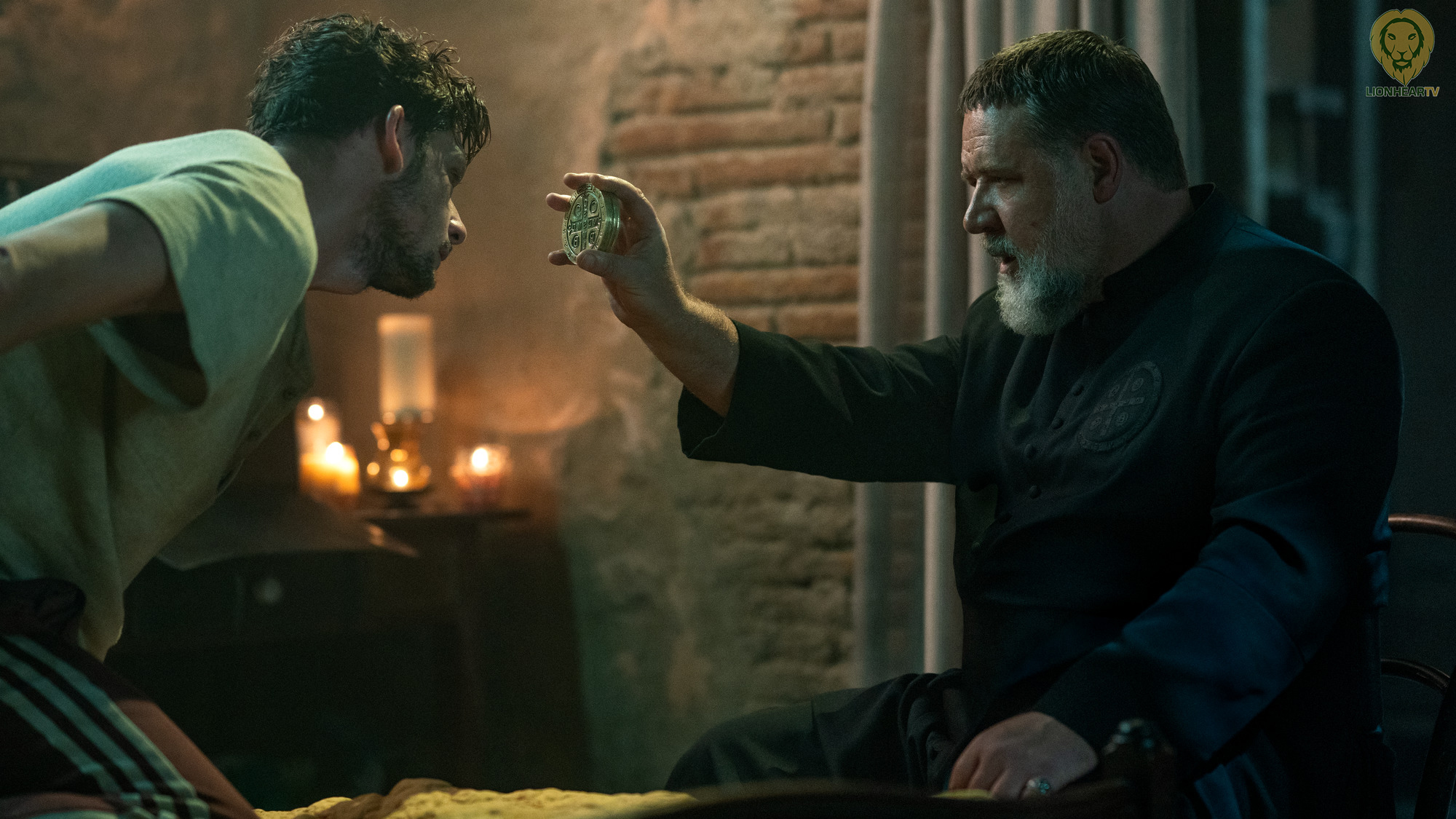Bringing the story of Father Gabriele Amorth, known by some as the Dean of Exorcists and to others as the Vatican’s Exorcist, to the big screen was no easy task.

Before The Pope’s Exorcist, other producers had tried to adapt Father Amorth’s best-selling memoirs into a film but none were able to convince the celebrated priest – except for Michael Patrick Kaczmarek, one of the producers of The Pope’s Exorcist.
“I believe I was able to succeed where other producers failed in that I was able to convince Father Amorth about my sincere religious devotion,” explains Kaczmarek. “In our exchanges, I was able to convince him that if he took the chance to work with me, that I would try to make sure the Catholicity would be preserved in the film – and that he would be respected as a person along with the Church and his religious order.”
The producers lovingly refer to the film as “the James Bond of exorcists” because of the wealth of stories, anecdotes and real exorcism cases from its source material, Amorth’s memoirs An Exorcist Tells His Story and An Exorcist: More Stories.
In The Pope’s Exorcist, Amorth is played by Academy Award®-winner Russell Crowe. “Gabriele Amorth had a purity of faith that gave him a level of courage and bravery to do the job,” says Crowe. “It’s a very dark pursuit – you’re dealing a lot with people who are suffering deeply.”
To make the film frightening beyond the jump scares, screenwriter Michael Petroni created a narrative that seeks to delve deep into the motivations of the devil. “This required our character of Father Amorth to do some serious investigating and uncovering of a secret history, to find connections where the demon might have appeared before,” says producer Kaczmarek.
In the film, Father Amorth and his partner, Father Esquibel, played by Daniel Zovatto, investigate a possession at St. Sebastian Abbey in Castile, Spain, where a young family is making a fresh start by renovating the old property. “In the movie, the abbey has a long history with the Catholic Church, and there are some things that happened there which get uncovered,” says Crowe. “These events took place during some of the darkest days of the Catholic Church, as punishment was meted out to people who didn’t measure up to the depth of their belief. We all thought that that was an excellent way to dig deeper into the history of Spain.”

Lending greater authenticity to the film is executive producer Edward Siebert, S.J., a Jesuit priest and founder of Loyola Productions.
“Stories of good and evil are as old as time but the story of Father Amorth and his unique role in fighting evil is an important story to tell,” says Siebert. “The Pope’s Exorcist reflects on some of the most challenging aspects of faith. When we shed light on sin and evil, it reflects back the pain of our past and present. While the demons in the film may seem extreme and exaggerated, the movements of disturbance and evil inside of us have the power to overtake us. I have always believed that the power of prayer, the naming of demons, the forgiveness of sins, and the conquering of evil are central to faith. Any story that ends with the enemy’s defeat is ultimately a story of hope.”
In cinemas starting April 19, The Pope’s Exorcist is distributed in the Philippines by Columbia Pictures, local office of Sony Pictures Releasing International. Connect with the hashtag #ThePopesExorcist


